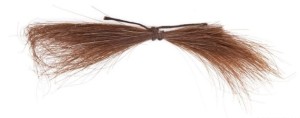Unlike prison policies justifying removal of fake hair, the Fifth Circuit Court of Appeals has questioned a Texas prison’s prohibition on natural hair to be used in a religious ceremony.
As recently reported, a Texas prison denied William Chance’s request to use two small locks of his deceased parents hair in a Native American ritual known as “Keeping of Souls.” After Chance’s parents passed away, he made the request for the locks in order to “honor them properly” as prescribed by his faith. Housed in a special unit designed for Native American religious believers, Chance is among a population of approximately “85 prisoners who participate in Native American religious activities about twice a month.” The ceremony would involve “4-inch locks of [his parents’] hair about as thick as pencil lead.”
But the Texas Department of Criminal Justice (TDCJ) denied Chance’s request, saying that he could only possess items available for purchase through an approved vendor or the commissary. Interestingly, unlike the desired locks for the ceremony, Chance was able to secure a medicine bag with horsehair through these “proper” channels.
In response to the denial, the Texas Civil Rights Project took up Chance’s case, arguing that the prohibition “violates the federal Religious Land Use and Institutionalized Persons Act, which bars discrimination or unduly burdensome restrictions on individuals and religious organizations.”
Reviewing the case last month, the Fifth Circuit Court of Appeals decided the lower court erred when it found, on summary judgement, that the prohibition does not violate federal law. Favoring Chance’s argument, the Court said that “a small lock of hair is no more capable of being soaked in drugs than the letters in a prisoner’s mail,” and the hair could be inspected and tested. The Court also noted that “TDCJ permits Native American prisoners to possess such objects as a bone or a tooth, which are apparently not available for purchase from traditional vendors.” So, why then the ban on hair? Subsequently, the Court remanded the case for a lower court to properly decide whether the prohibition of the locks is “the least restrictive means of furthering TDCJ’s compelling interests.” The trial date is set for January.

